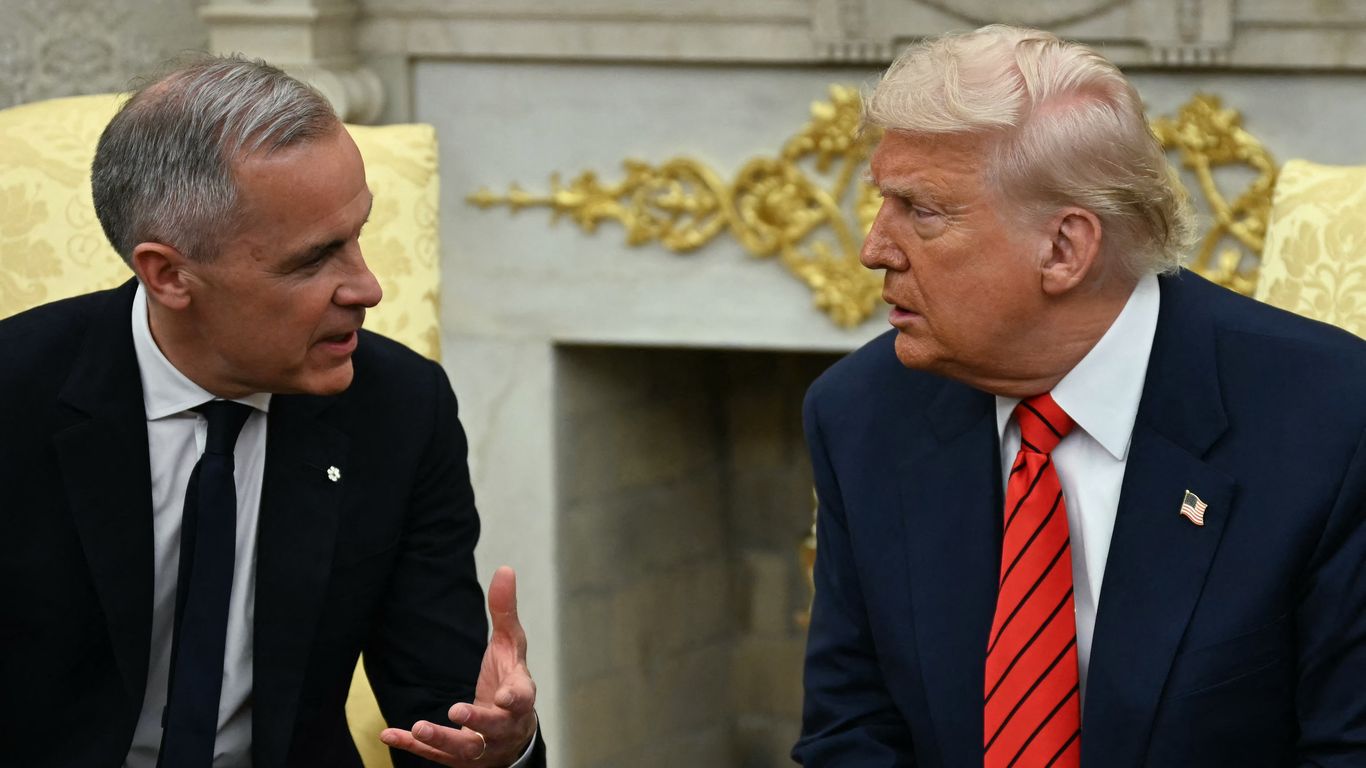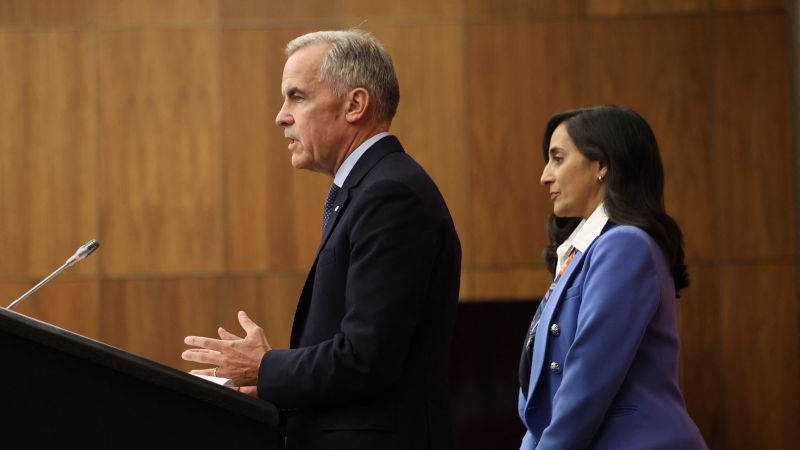UK, Canada, and Australia Recognize Palestinian Statehood

Introduction
The United Kingdom has announced its recognition of Palestinian statehood, 108 years after the Balfour Declaration. The decision, which has been made alongside Canada and Australia, serves as a major development in the ongoing conflict between Israel and Palestine.
Key Details
This recognition comes at a crucial time as Israel continues its destructive actions in the Gaza Strip, resulting in numerous civilian deaths and displacement. The move by the UK, Canada, and Australia sends a strong message to Israel that their actions will not go unnoticed or unchallenged by the international community.
This decision also holds significance for the Palestinian people, who have long been fighting for their right to self-determination and statehood. It serves as a step towards the realization of their aspirations and a recognition of their identity and sovereignty.
Impact
This recognition by the UK, Canada, and Australia has the potential to bring about positive changes in the ongoing conflict. It will put pressure on Israel to reconsider its actions and engage in meaningful dialogue with Palestine in the pursuit of a peaceful resolution.
Furthermore, this decision will also have a significant impact on the diplomatic relations between the countries involved. It showcases the power and influence of collective action and solidarity in addressing global issues.
Conclusion
The recognition of Palestinian statehood by the UK, Canada
About the Organizations Mentioned
United Kingdom
The **United Kingdom (UK)** is a sovereign island country located off the northwestern coast of mainland Europe, comprising England, Scotland, Wales (all on the island of Great Britain), and Northern Ireland on the island of Ireland. London, its capital, is a global commercial, financial, and cultural hub[2]. The UK is the world's sixth-largest economy, with a 2024 GDP growth of 0.8%, driven mainly by services, including professional, scientific, and technical activities[1]. Historically, the UK evolved from a collection of kingdoms into a unified state with a constitutional monarchy, currently led by King Charles III and Prime Minister Keir Starmer (Labour government as of 2025)[5]. Its legacy includes a vast empire and foundational contributions to law, democracy, science, and technology. Today, it remains a major center for innovation, finance, and technology, with London being a critical global financial center. Key achievements include its robust service sector growth, particularly in professional and technical industries, despite declines in traditional sectors like mining[1]. The UK has also made significant strides in scientific research, technology development, and cultural influence worldwide. However, challenges persist, including supply chain issues post-Brexit, inflation-driven cost-of-living crises, and political controversies such as immigration policies and social welfare reforms[3][6]. In 2025, the UK faces ongoing economic and social challenges, including poverty and inequality, complicated further by political dissatisfaction with recent government measures like the withdrawal of winter fuel payments for many pensioners[3][6]. Despite this, it remains a stable democracy with regular free elections and a vibrant media landscape[7]. The UK’s population is approximately 69.7 million in 2025, with diverse urban centers like Birmingham, Manchester, Edinburgh, Glasgow, and Cardiff contributing to its economic and cultural dynamism[2][9]. The government is focused on addressing socio-economic disparities while maintaining its role as a leading global economic and
Canada
**Introduction to Canada** Canada is not an organization but a country known for its vast economic and natural resources. It is the ninth-largest economy globally, with a highly developed mixed economy that is deeply integrated into the global trade system[6]. Here's a summary of Canada's key aspects relevant to business and technology: ## History and Role Canada has a long history of economic development, with significant contributions to global trade and finance. It is a founding member of the World Bank Group and has played a crucial role in international development initiatives[8]. ## Key Achievements - **Economic Contributions**: Canada is one of the world's largest trading nations, with strong trade relationships, particularly with the United States[6]. - **Innovation and Competitiveness**: It ranks high in the Global Competitiveness Report and Global Innovation Indexes, indicating its strong capabilities in innovation and business[6]. - **Multilateral Engagement**: Canada has been a strong proponent of multilateralism, supporting global development goals through its membership in the World Bank Group[8]. ## Current Status - **Economic Challenges**: Canada faces challenges such as rising tariffs with the U.S., weak productivity, and high household debt, which impact its economic growth[2][4]. - **Population Growth**: The country has experienced rapid population growth, driven largely by immigration, which has both bolstered labor input and strained housing affordability[9]. - **Resilience**: Despite these challenges, Canada's economy remains resilient, with a strong policy framework supporting macroeconomic stability[2]. ## Notable Aspects - **Trade Relations**: The U.S. is Canada's largest trading partner, with significant trade in goods and services[6]. - **Innovation and Technology**: Canada is home to vibrant tech hubs, such as Toronto and Vancouver, and supports innovation through various government initiatives. - **Global Influence**: Canada plays a significant role in international forums, promoting sustainable development and economic cooperation[8].
Australia
Australia—officially the Commonwealth of Australia—is a sovereign nation, not an organization in the conventional business sense, but as a country, it functions as a complex, interconnected system of governance, economy, and society with a global footprint. As a constitutional monarchy and parliamentary democracy, Australia is a federation of six states and ten territories, with a highly urbanized population of nearly 28 million, concentrated along the eastern seaboard[7]. Its capital is Canberra, while Sydney and Melbourne are its largest and most economically significant cities[7]. ## History and Governance Australia’s modern history began with British colonization in 1788, evolving into a federation in 1901. Today, it is recognized as a stable, democratic, and culturally diverse nation with a robust rule of law and high levels of public trust in government—46% of Australians express high or moderately high trust in the national government, above the OECD average[3]. The country’s governance is characterized by a commitment to transparency, efficiency, and public service, with 68% of citizens satisfied with administrative services[3]. ## Economic Profile and Achievements Australia boasts one of the world’s strongest performing economies, underpinned by abundant natural resources, advanced technology sectors, and a highly skilled workforce[1][7]. The economy grew by 1.3% in the 2024–25 financial year, rebounding from weather-related disruptions earlier in the year[2]. Key drivers include mining, agriculture, education, and financial services. The country is a global leader in innovation, particularly in renewable energy, medical research, and fintech. Australia’s trade relationships are vital, with China, the United States, Japan, and South Korea as major partners. While the U.S. is a significant export destination for Australian agricultural products, potential U.S. tariff changes pose a risk, especially to rural economies[9]. The nation is also a founding member of international groups like the United Nations, G20

















